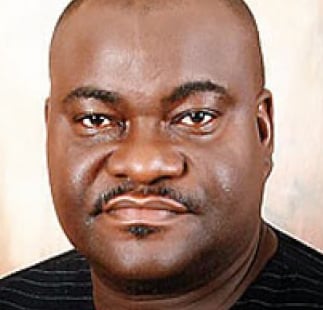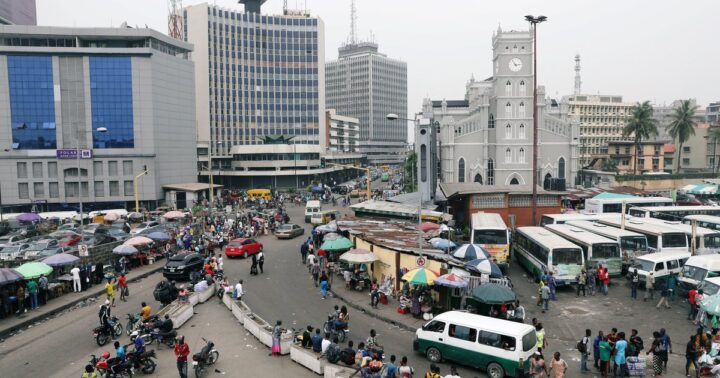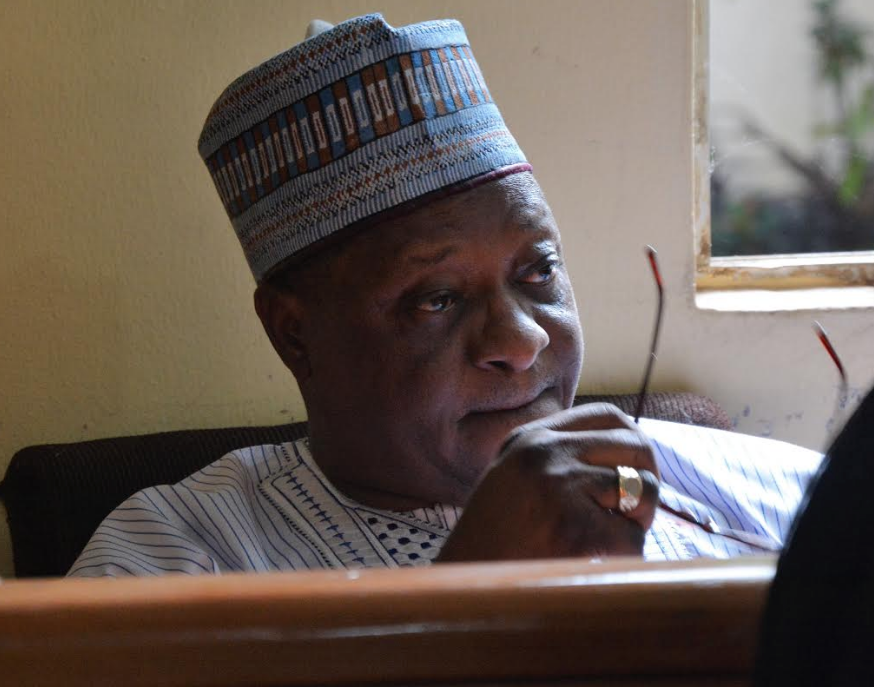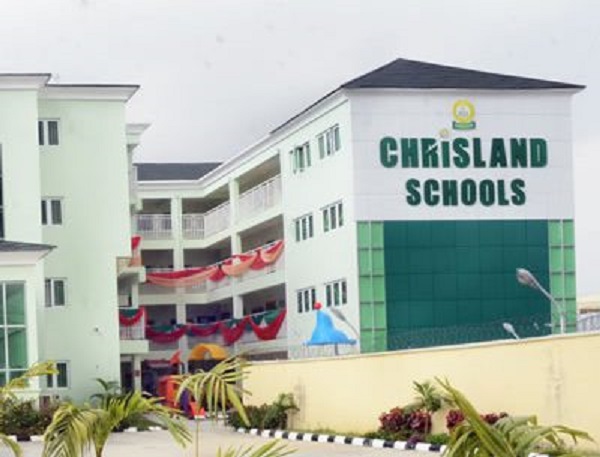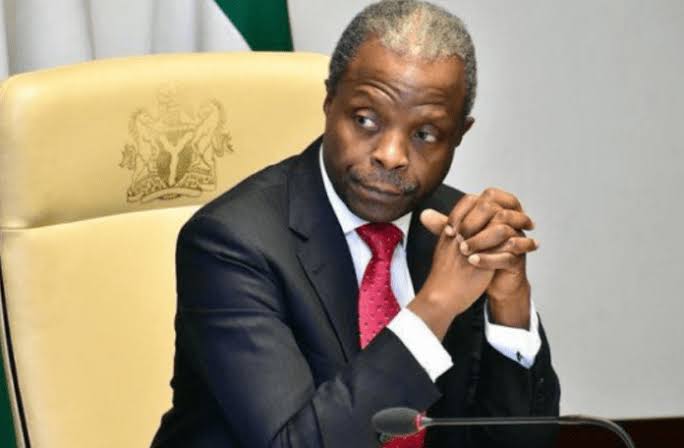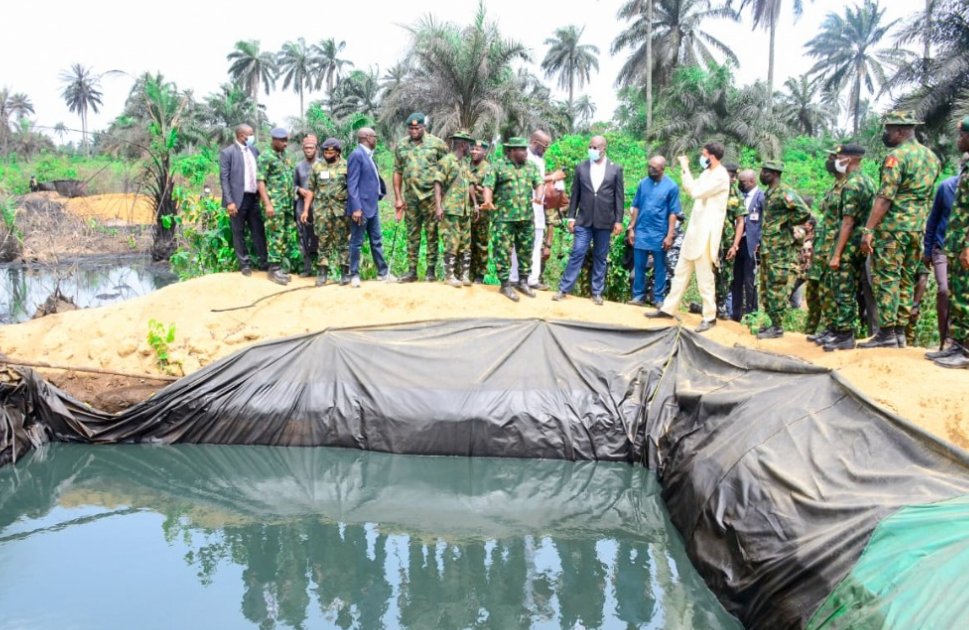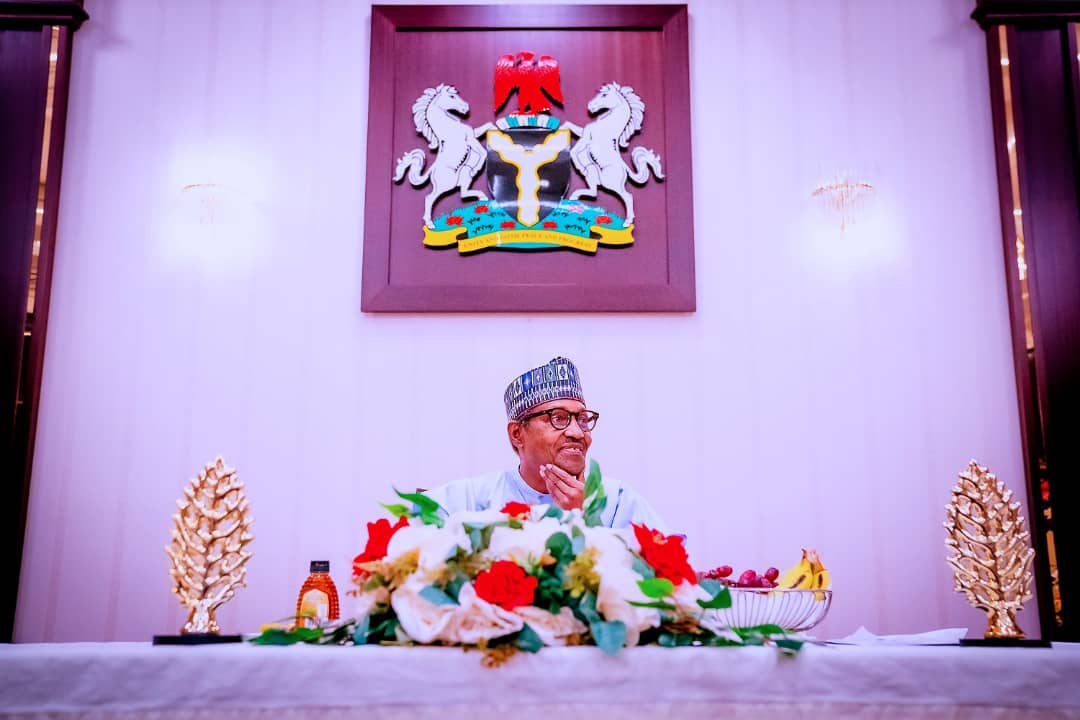Courtesies and protocols
Preamble
Permit me to begin by noting just how excited I am to be in Isanlu, my hometown, on this occasion of the commemoration of the 2022 edition of Isanlu Day. Despite the fact that some of us did not grow up at home, Isanlu Day has always held a special fascination for us. By no design of mine, I have, rather unfortunately, not been able to visit home since February 2021, when I came with my wife, to attend the rites of passage, of a relative of mine. I have always looked forward to visiting Isanlu, with a lot of excitement. Indeed, I used to be more regular and even came along with friends and associates from across the country, and beyond. Together, we always savoured the natural ambience of home.
Our very friendly and welcoming people; the notable serenity of the atmosphere, pitched against the rapacious rat race of the urban centres; our home-grown menus and homemade beverages, continue to engender repeat visits to our hometown. Our earthy jokes and camaraderie, and that naturalness about us which stands in stark contrast to the affectation and fakery of the cosmopolis, are essential components of our makeup. Even in my poetry, Okunland and Yagbaland in general, and Isanlu in particular, remain constants. Fortuitously, my newest volume of poetry, my third, titled A Medley of Echoes, was released just last week. Apart from dedicating one of the poems, “A bouquet for Bola,” to the memory of my younger brother, Pius Adebola Adesanmi who, unfortunately, I never got to meet during his very eventful life and career, the multifaceted, therapeutic essence of home is celebrated in another poem in book, which I call “Yuletide Echoes.” Let me quote some parts of the poem:
Advertisement
Past treacherous bumps
And ever twisting bends
Past gullies, gnawed deep
Deep still to laterited marrows
Past the squinted eyes
Of ransom-seeking man-stealers
Past hooded robbers
And rent-seeking state guards:
Okunland hugs me
In flip-armed embrace
Oworo opens its leafy gates
To Bunu
Bunu chaperons me to Oweland
Thenceforth to Gbedde
Onwards to Yagba.
Let me catch this yuletide breath
Awakened each day
By the distinct crow of the cock
And the bleating symphony of goats and rams
As sunrise gently unveils
The gleaming face of breaking day
From the overwhelming darkness of black night…
Renowned multiple award-winning dramatist, poet, novelist, scholar and public intellectual, Emeritus Professor Femi Osofisan, recipient of the 2004 Nigerian National Order of Merit, (NNOM), who graciously wrote the foreword to the book, notes that: Olusunle takes us to the pristine splendour of his Okunland, where, especially at yuletide, we see a demonstration of idyllic vivacity and convivality. This is where one can experience the needed communion with nature and innocence. In lines reminiscent of the Negritude poets of old, Olusunle sings: ‘Let me mingle with those who know the earth/who commune with the earth…/Let me bask in this priceless oasis of sanity/In the pristine homeland. This is the manner of adulation and delight, I have about home, Isanlu.
Let me pay deserved homage and tribute to Kabiyesi, the Agbana of Isanlu, His Royal Majesty, Oba Moses Babatunde Etombi. Kabiyesi, if a horse was to ride through my chest as we speak, it will indeed have a thoroughfare. It feels truly great to share the same middle name, “Babatunde,” with Your Majesty, a standard ascription in the global Yoruba sub-continent, to male children born after the departures of their fathers or grandfathers. The last time I saw Kabiyesi, by the way, was at the conferment of the rank of Senior Advocate of Nigeria, (SAN), on our own Eyitayo Fatogun, December 2021. Before then, I saw him about three years ago, in January 2019, to be specific, at the investiture of Prof Eyitayo Lambo, with an honorary doctorate, at the Bingham University, Karu, Abuja.
Advertisement
Typical of his very humble and unassuming self, Kabiyesi was in corporate dress, complete with his tie and jacket, sitting in a quiet corner of the arena where Prof Lambo was to be recognised. Our very own Prof Alexander Babatunde Adelaiye, was the Deputy Vice Chancellor, (DVC) of Bingham University at the time and I remember whispering to him that Kabiyesi must be duly recognised as such. In his trademark self-effacing persona, he pleaded he had not been formally inaugurated and presented with his staff of office. Kabiyesi and I have spoken on a number of occasions though, but virtual interaction can never equate physical engagement. It’s good to see you, Sir, Kabiyesi.
I want to commend you, Your Majesty, for the multifaceted positives, which your regime has brought upon to Isanlu even within this short duration of your reign thus far. Today, we can celebrate the onset of a vibrant, re-energised, proactive and rebranded Isanlu Progressive Union, (IPU), which is striving very hard to impact on our homeland, with novel verve and infectious zeal. The new leadership of the IPU, led by my brother in whom I am very pleased, Bashorun Kayode Adedayo, a respected attorney and top federal civil servant, has rejuvenated the association in such a manner, that you cannot but notice its endeavours.
More than ever before, there is a more visionary, more populist, more community centred dimension to the initiatives and activities of the IPU. These are so compelling, that despite the very busy schedules of some of us, we make out time to participate in events and programmes of the IPU, either physically or virtually. For some of us who didn’t grow up in Isanlu at any time, the subsisting IPU leadership is helping us to know more of our people and to make new friends. Among others, Dr Patrick Daniels, Rev. Ayo Moses, Messrs Stephen Adewunmi, Fisayo Ojo-Hamson, Segun Adeoye, Femi Abe are some of my new friends. I pray God for an opportunity to play host to our brothers and sisters, in Abuja, sometime soon.
On account of the human resource quality and diversity which Isanlu has produced, Kabiyesi, I have always desired that one of our own, is elevated to the rank of SAN in the legal profession, for instance, much as I’m not a lawyer. Yes, the profession was my first choice when I was foraging for a course of study, but somehow, English, literature and journalism got the better of me along the way. It adds to your bragging rights in public discourse when you can cite a broad spectrum of professionals, academics, entrepreneurs, top military and security personnel and so on, who have excelled nationally and beyond, who come from your homestead.
Those who follow my engagements in public discourse, know my deep-seated affection for, and partiality towards everything Okun, everything Yagba, everything Isanlu. I never miss the slightest of opportunities, to draw attention to the situation of our people, our ecology, our infrastructure decadence and deficits. In the same way, one never misses opportunities to celebrate our people, when good things happen to them. Indeed, I have no apologies for showcasing my people at every opportunity. I am proudly Okun, proudly Yagba and proudly Isanlu.
Advertisement
I remember Patrick Daniels’ bewilderment when I sent him the link to my piece on Eyitayo Jegede’s elevation, which was published in the very highly respected Thisday newspaper, among a host of other news outlets last December. To the glory of God, and under your superintendence, Kabiyesi, we now have one SAN in Isanlu. I believe many more are in incubation and will blossom at God’s appointed time. My celebration of Brig Gen Simon Olufemi Adeoye, on the recent occasion of his “pulling out” from the army, seven years after his retirement, equally received requisite ventilation in the media. I hope to make allusions to promising developments in Isanlu in recent years, all of them blossoming under the watch of Kabiyesi, later in this paper.
Your Royal Majesties, Elders, Leaders, Beloved Brothers and Sisters, please pardon my elaborate prefatory remarks. They are of utmost importance though to put into proper context, the core issue we shall be looking at in this presentation. My primary responsibility at this event, is to establish an inextricable nexus between intra-communal harmony and cohesion, and socioeconomic development in our beloved motherland. This is particularly germane, given the rapidly evolving status of our own dear Isanlu, in the sociopolitical scheme of not just our local government area and Yagbaland, not only in Kogi West and Kogi State at large, but indeed in the North Central geopolitical zone and in the nation at large. I promise it will be laconic and pointed at the same time, to enable us catch up with other activities lined up for the day.
Introduction
Modern-day Isanlu, is the administrative headquarters of Yagba East local government area, Kogi State. It has indeed been defined elsewhere, as the “political, social and cultural centre of Yagba East, Yagba West and Mopamuro local government areas.” This explains the designation of Isanlu, as the headquarters of Yagba federal constituency, one of the nine such constituencies, by electoral delineation in Kogi State at large. Yagbaland is the single largest Okun-Yoruba sociocultural grouping in Okunland. Yagba people do not only straddle the three local governments mentioned above and are domiciled in 34 electoral wards, we have cross-border siblings in contiguous communities in contemporary Ekiti and Kwara states, respectively.
Advertisement
Isanlu is made up of 17 communities, including: Makutu, Mopo, Offin, Ijowa, Idofin, Ilafin, Itedo Makutu, Bagido and Odogbe. There are also Iye, Ilotin, Itedo-Amuro, Itedo-Ijowa, Irunda, Iddo Ojesha, and Itedo Irunda. Much as the geographical span presently known as Isanlu was a fallout of the reorganisation of colonial villages carried out in 1912, Isanlu, according to historical accounts, had existed since 1600. Ade Mobain-Obayemi who deployed archeological, linguistic and cultural instruments to extrapolate the ages and settlement patterns of Isanlu communities, posited that the earliest Isanlu settlement was most probably in existence between 1600 and 1700, which is usually regarded as the “metal age.”
In his own account, C.D. Ford proferred that Isanlu pre-dated Obayemi’s conjecture, and was most probably in existence beginning from 1300 to 1400. Ihonlu was the initial name adopted for the primordial community by the various settlers. As the various hamlets, settlements and communities evolved, however, the name of the larger community was moderated to what is presently known and referred to, Isanlu, by the mutual congruence of the early settlers. The subject continues to engage the interest of historians and researchers, aeons after the beginnings of the overarching community.
Advertisement
The historical trajectory of intra-communal amity in Isanlu
By various accounts, Isanlu had its first traditional ruler in 1840. Ever since, the community favoured a rotational leadership arrangement, between two major primordial blocks and ruling houses, Makutu and Okemeta. To elucidate this preferred method of ascendancy to the apex traditional leadership of Isanlu, the immediate past Agbana of Isanlu, the official title of ruler, Oba Aaron Addi Ikuborije, hailed from Omowa in Okemeta. His successor and incumbent, Oba Etombi, is from the Makutu leg of the pair. Interestingly, Isanlu has nothing like a lineage of royal bloodlines.
Advertisement
Rather, a hybrid of declarations articulated in 1972, 2000 and 2004 respectively, combine to give teeth to this leadership pattern, which does not accord magisterial monopoly to a single family or dynasty. In nearly 200 years therefore, Isanlu has been governed by a set of leadership conventions which has facilitated the selection of a king for the mega-community, and the inauguration of such a traditional leader, without rancour, bile and acrimony. This system has been one very sustainable binder amongst the various communities in Isanlu, the realisation that rulership can swing towards any segment of the whole, at some point in the evolution of the broad based community.
The consummation of marriages between the confederating communities in Isanlu, is yet another factor which has engendered rapprochement and cohesion between the various strands of Isanlu. There is no parochial stratification, segregation or demonisation between the various communities in Isanlu. Every village or town in the land, is an agglomeration of freeborns. Between Ijowa on the more northern parts of Isanlu, and Makutu, at the other end, a distance of about 15 kilometres, the people of Isanlu are one and the same, without inhibitions. Instructively, cognomens, appropriately called oriki in Okun-Yoruba culture, is another promoter of amity among Isanlu people. Owu, in Okemeta and Makutu; Agbeja in Omowa; Adi in Mopo; Ayagba in Offin; Agie in Ijowa; among others, are not restricted or localised to their immediate cultural spaces.
Advertisement
They have kith and kin in other communities, which makes for seamless integration. Meetings are convened at the levels of the leaderships of families which share these affinities, which in turn enhance understanding. Closely tied to this is the Iyawo ile, association, a grouping of matriarchs across families, linked together by common oriki. Should an Adi be marrying a partner from the Agie family therefore, the older women within both extended families, united by both oriki, rally themselves together, to participate in and support the programme. This is yet another sub-culture in Isanlu which continues to hold our people together.
There is also a “Land Owners Association” in Isanlu, the umbrella body for all families who own parcels of land in Isanlu, usually passed down historically, from one generation to another. The association meets periodically to adjudicate on misunderstandings arising from land and boundary disputes, between contending families or owners as the case may be. It is to the credit of our people, that there have been no reported incidents of land disputes, escalating into mortal contentions. Till date, there exists in Isanlu, another unifier in the mould of a “traditional court.” Known as the Ajewo Court, the body is chaired by the Agbana of Isanlu who doubles as Chief Judge. The Balogun of Isanlu, as well as the Obas of the various villages; the Senior Baales and Isanlu High Chiefs, make up the configuration of the body. The institution meets on a fortnightly basis and adjudicates in civil cases and family squabbles.
While various sources have submitted that christianity is the dominant religion in Isanlu, there has never for once, been altercations between practitioners of the religion and adherents of other faiths, including muslims and traditional worshippers. Religion has never been a sore point in the continuing evolution of Isanlu, which over time, has been host to settler communities from across the country. Large Fulani, Hausa, Igbo, Tiv and Agatu communities, among others, continue to seek livelihoods, acculturation and protection in a land famous for peace, accommodation and sanity.
Leveraging the gains of intra-communal cohesion for future development
Thus far, we have attempted to establish the genuineness of sociocultural harmony in Isanlu, a prerequisite for the multi-sectoral development of the community. The immediate spinoff from this preface is how do we deploy this critical resource for the overall development of Isanlu?
We cannot but pay deserved tribute to leaders of our community who have deployed their offices and goodwill for the development of Isanlu at various times in the evolution of the community. As Minister of Health, Prof Eyitayo Lambo ensured the siting of a Primary Healthcare Development Centre, (PHDC), in Isanlu. He proceeded in 2006, to initiate an “Isanlu Healthcare Development Initiative, (IHDI). Appeal fund launchings were held in Abuja and Isanlu, respectively. It is a measure of the breadth of Lambo’s vision that Nigeria’s respected, longserving military leader, Gen Yakubu Gowon, GCON, among many other notable personalities, including former governors, attended the Isanlu leg of the advocacy, in his personal capacity.
One of the key pillars of the project was the “annual medical mission” hosted in Isanlu. A hybrid of Nigerian medics in diaspora, and their home-based counterparts in large numbers, visited and encamped for one whole week in Isanlu, attending to a diverse spectrum of medical issues in the community, including patients from other communities, outside Isanlu. The initiative spawned a new Community Healthcare Centre to pursue a novel Community-based Healthcare Insurance Scheme, which was launched by former President Goodluck Jonathan, December 2011. He was represented on that occasion, by his Minister of Health, Prof Christian Onyebuchi. Laudable as the effort was, it subsisted for just a few years before diminishing resources in the IHDI, and dwindling support from some key stakeholders collaborated to suspend the dream.
A select number of our people have equally attempted to propel industrial development in Isanlu at various times. We cannot forget the exertions of Alhaji Abdulsalam Oladimeji Musa, after whom the venue of this lecture is named, in engraving the name of Isanlu on the national consciousness as a potential investment destination. At a time when entrepreneurs were generally circumspect about investing in rural environments, Alhaji Musa established Polar Beverages, which produced a wide array of non-alcoholic drinks. We all felt a sense of achievement as people from Isanlu, where for every bottle of Cocacola, we produced a variant called Polar Cola.
En route to the agglomeration of resources to grow our beloved Isanlu, we must be guided by the selflessness of our compatriots, our Igbo brothers in the South East of the country. The ugly experiences of the 30-month Nigerian civil war which ended, January 1970, compelled an unshakable “home first” ethos in our south eastern brethren. The massive loss of property especially in Port Harcourt suffered by them after the war, and the mistrust and suspicion with which they were viewed by some of Nigeria’s post-war leaders and sections of the country, an unfortunate trend which subsists till today, compelled a decisive rethink in their aggregate worldview.
While they continue to invest in and contribute to business and investment outside their cultural and geographical space, they do not forget to develop their homeland, intentionally and simultaneously. To be sure, the South East has the largest number of infrastructures, including roads, drainages, civic centres, town halls, hotels, institutions of learning, and so on, built by individual and communal efforts in their homestead, than any other sociocultural group in Nigeria. One cannot but marvel at the motorability of roads in Anambra State for instance, which facilitate easy interconnectedness between the various communities in the state. These infrastructures are products of government efforts, augmented by the support of private citizens. Let us indeed be reminded that the very first effort at developing an airport, without the support of the federal government in Nigeria, was courtesy of the bold, visionary efforts of the Igbos.
Under the administration of Sam Mbakwe, governor of Imo State during the Second Republic between 1979 and 1983, an appeal fund was launched for what is today known as “Owerri Airport.” The Mbakwe administration reckoned that the Enugu airport was inadequate to serve the needs of the entire south east of Nigeria, which, over the years, has been carved into the five distinct states, we have come to identify, in that geopolitical zone. In an era where the Nigerian monetary currency was very strong, running neck to neck with the US dollar, contributors subscribed by as “little” as N1000, a lot of money then, into the appeal fund launch. Owerri airport had been practically completed courtesy of communal efforts, before it was taken over as a facility of the federal government, under the administration of former military President Ibrahim Babangida, between 1990 and 1992. The airport today ranks in the top six bracket in terms of passenger volume, after the Lagos, Abuja, Kano, Port Harcourt and Enugu airports, respectively.
It was the success of that experiment, which goaded the construction of the airports in Uyo (Akwa Ibom); Oba (Anambra), Asaba (Delta) and Yenagoa (Bayelsa) states, by various state governments. Conversely, there is no single airport in the north of Nigeria, built by the efforts of individual state governments. The Obajana airstrip within the Dangote Obajana Cement Complex, which serves the needs of the entrepreneur, Aliko Dangote, principally, is perhaps the singular private initiative, not a governmental initiative, in the north. Truth is the north has always been privileged in our sociopolitical calibration.
Next door, our brothers in Aiyetoro-Gbedde, in Ijumu LGA, in 2019, initiated what they call the “Aiyetoro-Gbedde Global Network,” (AGN), a community-driven platform consisting of prominent sons and daughters of the community. President of the network, Oladele Oyelola, a former Executive Director in First Bank of Nigeria, (FBN), opined that the group was formed as a “self-help” platform aimed providing developmental support to the community in education, healthcare, infrastructure and economic empowerment. As at February 2019, AGN had a membership of 65 people including professionals in medicine, law, journalism, accountancy, academics, banking, engineering and architecture, among others. A year ago, the initiative had aggregated funds in excess of N100 million, part of which has been expended on the renovation and upgrading of schools and healthcare infrastructure, among others.
Our Igbomina brothers in Kwara State have been famous for this manner of community-centred development, over time. As a young man, I was a teacher in two schools in Igbomina-land, both of them bearing the imprimatur of collaboration by the people. I worked in Esie-Iludun Grammar School immediately after the completion of my Higher School Certificate programme, (HSC), from the School of Basic Studies, Kwara State College of Technology, Ilorin. The programme was moderated at the time, by the Cambridge University and after the completion of our final examinations, we had the window of a few months before proceeding to the university. As the compound name of the school suggests, it was the baby of collaboration between two neighbouring villages. Between 1988 and 1990, I equally worked at what was then called DAB Comprehensive High School, Iddo-Oro. The name of the school was derived from the initials of the name of the visioner, who built it and handed it over to the community. What this implies is that there have long been a tradition of giving back to the community, by the privileged, over time and space.
While we have also had our own variants of community-driven groups and associations, they must henceforth be rejuvenated and redirected to achieve our core communal goals and objectives. We must synergise to be able impact positively and pointedly on rebuilding and rediscovering our communities. While politicking engenders the implementation of “quick wins” by the political class, we must define what is good for our towns and villages, and pursue them with single minded gusto. Once upon a time, it was fashionable for every section of Isanlu to desire “community halls.” I ask the question: Have we fully developed this Isanlu Town Hall which has been in use for decades? Do we need community centres as monuments and adornments in our neighbourhoods, or skill acquisition centres, where people can be trained to acquire a wide array of competencies which can deliver bread and butter on their tables on a sustainable basis?
Can our brothers and sisters who are politicians meet regularly to discuss the germane needs of our people, of our communities, rather than desiring to take political plaudits for the things they do? Can we, for instance, unanimously confront the water problem in Isanlu, by resuscitating the water scheme in Makutu? This will serve us all better than the boreholes we drill around and the overhead tanks on which people write their names, something like: “Ijowa Borehole, Powered by Tunde Olusunle.” Why wouldn’t there be cooperation between the local government administration; the member representing Yagba East in the State House of Assembly; top officials of Isanlu descent in the executive arm of the incumbent administration, and compassionate members of the community, to put figures to the cost of filling potholes in the town with laterite, and getting compactors to provide palliatives for our people?
Individually and collectively, our attitude towards community development has to change. Let’s conceive of service to our people and our community as collaboration, and not competition. Rewards and adulation for the good we do are not from man, but from God above. I never met and never knew most of the people that I was able to assist in various ways while I was in The Presidency. I never asked to know which clan or family they came from. This is because my understanding of Isanlu is of one holistic entity. My father came from Mopo and my mother from Ijowa, both in Isanlu. To the glory of God, whenever I remember that I was an instrument in the hands of God in the provision of sustainable livelihoods for people from my home place, who are today in the National Council for Arts and Culture, (NCAC); Nigeria Security and Civil Defence Corps, (NSCDC); National Orientation Agency, (NOA) and Nigerian Immigration Service, (NIS), among others, I feel very gratified. For me, it is divine privilege to be able to impact others. This should guide our thought and vision henceforth.
Closing remarks
Your Majesty, Royal Highnesses, Elders, Our Mothers, Ladies and Gentlemen, permit me to wind up by once again congratulating Kabiyesi for the good things that are unfolding in Isanlu, under his leadership. He has worked hard to sustain unity amongst the 17 constituent communities which make up Isanlu. Peaceful coexistence among our people has improved, with the fair-minded and dispassionate adjudication of disputes. Traditional intelligence gathering and proactive measures have been adopted to stem crime and criminality in the community. It is worthy of note too, that networks like the “Federal Hunters,” “Federal Vigilantes” and local hunters are getting desired support from Kabiyesi.
Under his watch, Isanlu now has the most senior retired military officer in Okunland, maybe Kogi West senatorial zone as a whole, to be installed a traditional ruler. I am talking here about His Royal Highness, Oba Theophilus Ilemore, the Olurigirigi of Bagido. Oba Ilemore by the way, earned his medals as a Commodore in Africa’s most respected marine army, the Nigerian Navy, becoming a respected one-star General. There is an “Okun School of Nursing” in the works, while a training school of the Nigeria Police Force, (NPF), is in progress. Select roads in Isanlu are receiving attention, even as Kabiyesi keeps encouraging our people in diaspora, to look homewards. Your Majesty, may Isanlu continue to bloom and flourish under your reign.
Conclusion
While thanking the leadership of the Isanlu Progressive Union for this opportunity to interface with our people on this August occasion, permit me to note that it has been my utmost delight to have been invited to speak about this topic on this occasion. I received notable support from my brothers, notably Engr Francis Osasona; Bashorun Kayode Adedayo; Dr Patrick Daniels, Rev Ayo Moses Engr Dele Obiniyi and Mr Samuel Ajengbe, who called from time to time, volunteering assistance in whatever way. I’m grateful for the time and patience of all us present at this event.
May God bless us all.
May Isanlu bear fruit in our time, Amen.
Olusunle (PhD) delivered this paper at the “Isanlu Day” event on Friday, April 15, 2022, which held in Isanlu, Kogi state
Views expressed by contributors are strictly personal and not of TheCable.
Add a comment
